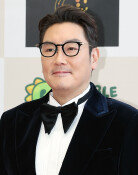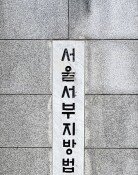[Opinion] Torino
Torino, the Italian city hosting the 2006 Winter Olympic Games, is comparable to the city of Ulsan in Korea. If Ulsan represents the history of the Korean automotive industry, Torino represents Italian automobiles themselves. It is where Fiat, the Italian automotive giant, was founded in 1899. The headquarters of the Fiat Group is still located in Torino. The name Fiat itself comes from Fabbrica Italiana Automobili Torino, meaning an Italian automotive company in Torino. Because of the historic background, a red Ferrari from Fiat appeared on the opening ceremony of the Olympic Games and spun in furious doughnuts to draw the Olympic Rings.
Torino also has special ties to Korean automobiles. Pony, the fist automobile model developed by Korea, made its international debut in Torino. Hyundai Motors, the Korean car manufacturer who developed Pony in 1974, displayed the model in the international automobile exhibition held in the same year in Torino and received a better than expected response. Two years later, Hyundai exported six units of Pony to Ecuador, beginning to write its success story. Hyundai and its affiliate Kia have grown to become the worlds seventh largest automaker, selling 3.77 million units last year.
Ironically, Torino turned its attention to hosting the Olympic Games to shed its image as an automobile city. In the 1970s and 1980s, Fiat relocated its factories to countries where labor costs were lower such as Brazil and Poland because of fierce labor disputes. That inevitably led to a decreased number of jobs. Torino decided to bid to host the Olympics as a way to solve the problem and finally succeed in winning the bid for the 2006 Winter Olympic Games in an IOC general assembly in Seoul in 1999.
It is hardly new that labor management relations have a critical impact on the landscape of automobile industries. After all, British carmakers that once dominated the global automobile markets failed due to conflicting industrial relations. Japanese carmaker Nissan also had to team up with Renault a few years ago because of its labor unions 100-day long strike. Fiat, too, still remains outside the worlds top 10 even though it has gone through structural reform, cutting tens of thousands of workforce in the recent four or five years. The Korean Confederation of Trade Union, which made a fuss outside but have not done its job of selecting the chairman, must learn lessons from the experience of Torino and Fiat.
Song Dae-keun, Editorial Writer, dksong@donga.com







